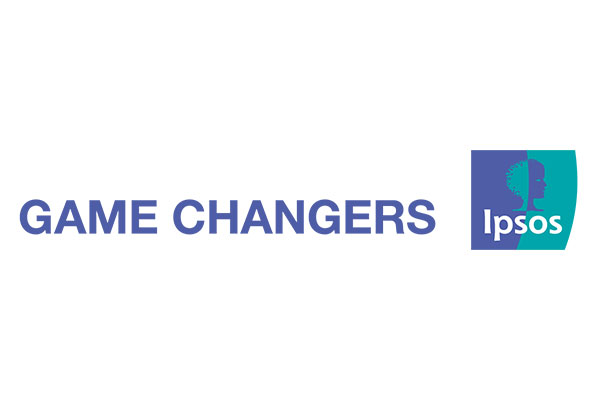Young people in South Africa do not think that “South Africa will be able to recover from being downgraded to junk status”. Only 45% of 15-17 year olds and a third (34%) of 18-24 years olds believe that South Africa will recover. These are some of the findings of a recent Pulse of the People™ study undertaken by Ipsos, interviewing 3,598 adults, of which 866 (24%) were younger than 25 years old. The study was conducted from 21 April to 22 May 2017.
In addition, more than half of young people also agree with the statement “Job creation will slow down because of the downgrade of South Africa’s credit status to ‘junk’”. Almost six in every ten (58%) of 15-17 year olds and 55% of 18-24 years olds agree with the statement. More than six in every ten young people (62%) say that the government is NOT doing well in trying to keep skilled people here and stopping the so-called “brain drain”.
Direction of the Country
Only about one fifth (19%) of South Africans aged 15 years and older believe that the country is currently going in the right direction. Despite an often-expressed belief that “young people are the future,” the views of young South Africans are not out of kilter with the rest of the country and they are also despondent about the direction the country is heading in. Almost two-thirds of young South Africans feel that the country is going in the wrong direction:
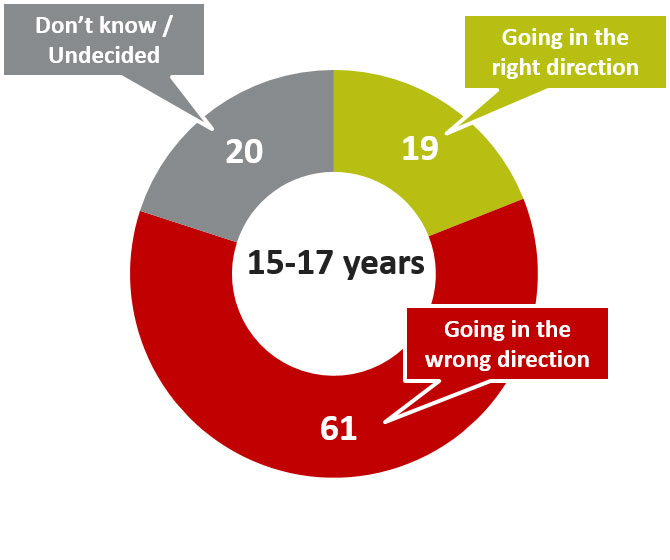
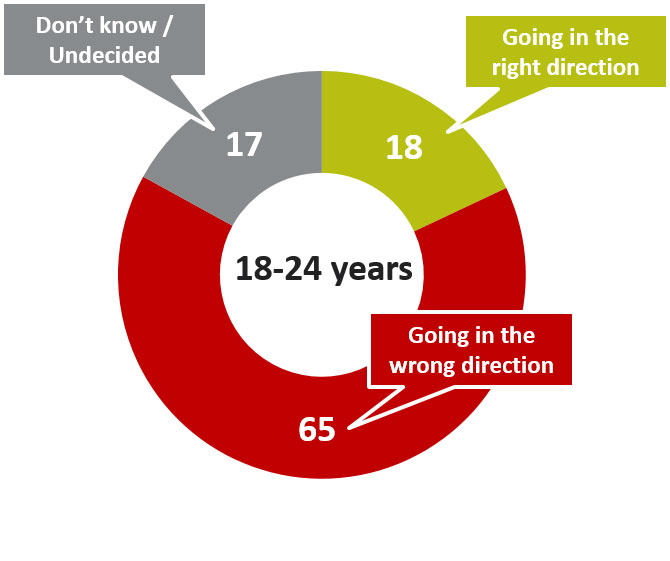
When asked about problems in the country that should be addressed, the related issues of job creation and education are always mentioned. Young people in South Africa bear a disproportionate burden in terms of unemployment, in fact, almost half (44%) of those currently looking for work are below the age of 25.
Working status and Job creation
Young people also do not have faith in the government when it comes to “reducing unemployment by creating jobs” and three-quarters (75%) of 15-17 year olds and 73% of 18-24 years olds say that the government is handling this issue either “not very well” or “not at all well”. They also feel strongly that the government is not doing well in “addressing the educational needs of all South Africans” – six in every ten (61%) of 15-17 year olds and 55% of 18-24 year olds expressed this opinion.
Currently, a large proportion of young people are students, those 15-17 years old are mostly still at school, while more than a third (36%) of 18-24 year olds are also studying (at school or tertiary institutions). For them, it is probably a worry whether they will find employment when finished with their courses or join the others in their age group already looking for work.
A staggering 41% of 18-24 year olds are currently unemployed and looking for work.
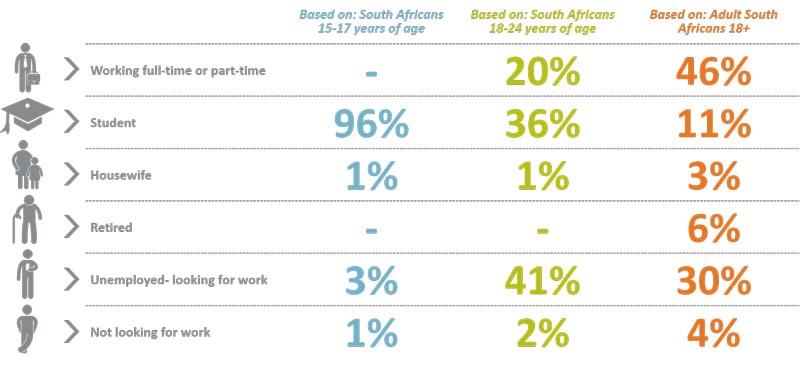
The future of job creation
An important issue is that many young people are currently busy with or have completed their secondary school education, but that job opportunities for people with these qualifications are limited.
Education experts often say that more technical or vocational training at a secondary school level can alleviate the pressure on tertiary institutions and contribute to job creation.
The table below illustrates that the educational qualifications of young people are generally higher than the average for South Africans, i.e. while four in ten (43%) adult South Africans have completed matric, the corresponding figure for 18-24 year olds is 60%.
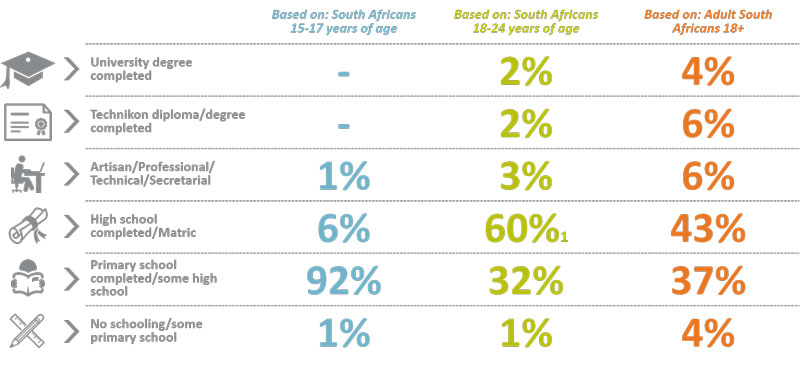
Politicians and others interested in the future of the country will ignore at their own peril the despondency of young people about the direction of the country and their views about issues of education and job creation.
Technical Detail
The Khayabus study conducted from 21 April to 22 May 2017 was the first omnibus conducted by Ipsos in 2017. A total of 3,598 South Africans, 15 years and older, were interviewed. They were randomly selected and interviewed face-to-face in their homes and home languages. Interviews were conducted all over the country, from metropolitan areas to deep rural areas. This methodology ensured that the results are representative of the views of the universe and that findings can be weighted and projected to the universe – i.e. South Africans 15 years and older.
Trained quantitative fieldworkers from all population groups were responsible for the interviewing and CAPI (Computer-Assisted Personal Interviewing) was used. All results were collated and analysed in an aggregate format to protect the identity and confidentiality of respondents.
All sample surveys are subject to a margin of error, determined by sample size, sampling methodology and response rate. The sample error for this sample at a 95% confidence level is a maximum of 1.63%.



